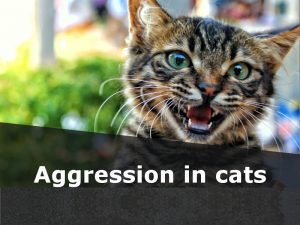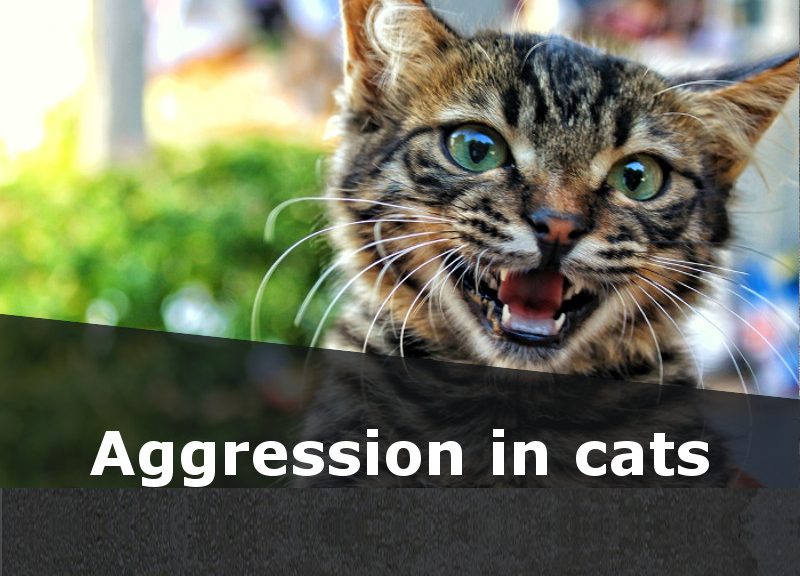
Cats may show aggression for different reasons and it’s important to identify them in order to properly manage the problem. Cats may show aggression towards humans out of fear, maybe due to poor socialisation with humans or due to an unpleasant event associated with that person or with people in general. Cats, just like any other animal, can also be aggressive when they are in pain.
General signs of aggressive behaviour include putting the ears back, having the body and tail lowered, having the fur up, dilated pupils (the dark part of a cat’s eyes), growling and attacking either using their claws or using their teeth. If your cat is being aggressive because he or she is scared of a person, your pet may also avoid that person and try to hide. If your cat is scared and he or she is approached or cornered, your pet may feel threatened and attack.
Ongoing exposure to fear inducing situations may worsen the aggression and you may notice stress related signs, such as avoidance behaviour, decreased appetite and over grooming. It’s important to manage this problem and as with all behaviour problems, a vet should check the cat’s health to make sure these issues are not motivated by pain or illness.
After you exclude medical causes, you can try to gradually expose the cat to the person he or she is scared of. Start by keeping them both apart but close enough for the cat to see him or her. When the cat seems comfortable with that and does not show any signs of anxiety or stress the person can move a bit closer. Repeat the process having the person move closer and closer, as your pet becomes accustomed and relaxed in his or her presence. You can reward your cat with a tasty treat as he or she relaxes and doesn’t react fearfully or aggressively around the person in question. You can repeat the process, with the person moving closer each time, and gradually the cat learns to associate this person’s presence with a positive, stress-free experience.
If your cat is showing aggression towards people and if you have any questions at all, do not hesitate and bring your pet to the vet. Your vet can give your pet a check-up to exclude any medical conditions that may be causing this inconvenient situation, and if you are dealing with a behavioural issue, you vet can either help you manage this situation or recommend a cat behaviourist that can help!
Would you like to know more about cats? Check our Feline Courses:
